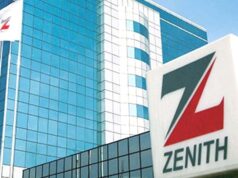The Nigerian Communications Commission (NCC) has expressed worry over the financial state of telecommunications companies in the country.
According to the Commission, an audit of the financial status of the telcos revealed that some of them are not in good health financially.
The audit, which was propelled by the lingering interconnect debt, which the regulator said had risen to N70 billion last year, was said to have revealed the true status of the operators leading to the increasing debt in the industry.
“The Commission recently conducted a review of the financial health of its licensees as a fallout from the systematic crisis faced by some of them, mostly associated with huge indebtedness and huge deficits in shareholders’ funds. The outcome of the review raised concerns and accentuated the widespread issues on capital structures and unsustainable debt to equity ratios of a substantial number of licensees.
“This requires a mechanism that will pre-emptily set parameters and monitor compliance; this is both imperative and a necessity that will protect the market,” the Commission disclosed in a document proposing a new capital structure for the operators.
Late last year, the Executive Vice Chairman of NCC, Prof. Umar Danbatta, had urged the telecom operators to settle the huge interconnect debts among themselves, noting that this should be resolved in the wider interest of the industry. Danbatta said the “interconnectivity indebtedness valued at over N70 billion is a big challenge to infrastructure expansion and inimical to healthy competition” which are needed for facilitating the digital economy in Nigeria.
Meanwhile, to forestall a collapse of the industry, the regulator said there is an urgent need for a new capital structure for the telecom companies.
According to the document titled: ‘Consultation Paper on Determination of Capital Structure for Licensees in the Communications Sector in Nigeria’, the Commission had set up a Committee in March 2020 to review the existing capital structure in the sector and determine whether there is a need to set any benchmarks or parameters.
The Committee was said to have conducted a technical review of a sampled population of current licensees, cutting across 15 licensing categories.
“It is clear from the outcome of the technical review that the Commission needs to act in a timely manner, to forestall a systematic and sector-wide collapse and its possible impact on the economy and national security of Nigeria. Clearly, the outcome of the technical review of the sampled licensees supports the need for a consultation process that will facilitate a determination of an ideal capital structure that will protect and sustain the communications sector in Nigeria,” the Commission stated.
The Commission said it intends to set out an optimal capital structure for its licensees, as the proportion of debt and equity that results in the lowest weighted average cost of capital.
“In order to optimise its capital structure, a licensee can issue either more debt or equity and the new capital that is acquired may be used to invest in new assets/infrastructure or may be used to repurchase debt/equity that is currently outstanding, as a form of recapitalisation.
“Although there are many contextual issues in relation to the determination of capital structures, the Commission is focused on investments, shareholders’ funding, and the ratio of debt to equity of all its licensees. Thus, capital structure in this context refers to the proportions or combinations of equity share capital, preference share capital, debentures, long-term loans, retained earnings, and other long-term sources of funds in the total amount of capital that a licensee should raise to run its business,” the Commission said in the document.
- Tinubu to IMF: We’ll provide safety nets for Nigerians to cushion reform’s effects - November 21, 2024
- Bauchi suspends 6 civil servants for stealing govt properties - November 15, 2024
- Zacch Adedeji: And the revenue keeps increasing… - November 15, 2024










